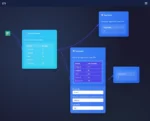In today’s rapidly digitizing world, data engineering and analytics have become the lifeblood driving innovation and competitive advantage. Businesses rely heavily on accurately leveraging their data streams; however, such vast quantities of personal and sensitive information also carry significant ethical responsibilities. Whether you’re constructing data pipelines, visualizing trends to empower stakeholders, or deploying predictive models to mitigate risks, embracing ethical guidelines is no longer optional—it’s essential. At Dev3lop, we prioritize transparent, ethical practices in our analytics and innovation strategies. In this article, we dive deeper into some of the critical considerations every organization and decision-maker must understand to ethically navigate the complex landscape of data engineering and analytics.
User Privacy and Data Security
User privacy and data security form the backbone of ethical data engineering. Businesses regularly collect enormous volumes of sensitive information—from financial and health data to personal preference information. Securing these data streams isn’t just a compliance necessity; it’s vital for maintaining customer trust and safeguarding corporate reputation.
An essential step in guaranteeing user privacy is implementing robust security measures across data transmission and storage. Encryption, data anonymization, and secure-access protocols together create multiple layers of protection. A trusted analytics partner can guide organizations in strategic engagements, such as securely deploying analytics software. For example, when organizations download Tableau Desktop, they should incorporate best practices to ensure data integrity and limit vulnerabilities during its use.
Moreover, understanding how data is collected, stored, and accessed is crucial. Strict adherence to industry standards, like GDPR and CCPA, showcase an organization’s commitment to ethical practices. Data practitioners should consistently validate their processes to maintain compliance and proactively identify potential ethical risks. Regularly auditing data pipelines and actively educating data professionals about privacy risks prioritizes a security-minded organizational culture, setting the foundation for trustworthiness.
Transparency in Data Management and Analytics
Transparency stands as a cornerstone for ethical analytics and data management. Stakeholders, users, and customers require clear insight into how their data is utilized, stored, and secured. Companies that proactively communicate their data handling procedures gain an exceptional level of trust from their stakeholders.
Achieving transparency can frequently involve establishing clear data governance policies, documenting processes thoroughly, and effectively communicating methodologies. When deploying data visualization solutions such as dashboards through platforms like Tableau Server, clarity in data sources, calculation methodologies, and processing procedures helps stakeholders interpret visualizations accurately.
Further, transparency demands careful consideration of the clarity and simplicity of visual communications. Decision-makers must prioritize eliminating visual clutter and unnecessary complexity. To learn more about effectively presenting your data, our article on how to avoid unnecessary visual clutter can guide you towards creating meaningful analytics outputs.
By embedding transparency within each data initiative, organizations not only comply with ethical guidelines but also reinforce stakeholder confidence, thus fueling enduring partnerships.
Bias and Fairness in Data Analytics
A significant ethical challenge in data analytics and engineering revolves around biases hidden within datasets and analytical models. Unaddressed bias threatens the accuracy, fairness, and effectiveness of data-driven strategies. When algorithms unfairly disadvantage or exclude particular populations, the repercussions not only compromise trust but may carry legal and competitive implications.
Thus, proactively spotting and mitigating biases within analytical models becomes imperative function of data science teams. For instance, if machine learning models power critical business decisions, special attention must be given to ensuring that training datasets are representative and balanced. Our deep dive into machine learning’s role in fraud detection highlights the necessity to consistently scrutinize the biases that could adversely impact predictive outcomes.
Organizations benefit from openly discussing biases and fairness internally, promoting education, best practices, and sharing of tools that evaluate and measure bias. Models require continuous monitoring and evaluation to avoid costly ethical lapses and severe reputational damage. Establishing fairness and inclusivity is fundamental both ethically and strategically, enhancing market reputation and stakeholder trust in data-driven endeavors.
Ethical Implications of Automated Decision-Making
The growing power and convenience of automated decision-making—enabled by sophisticated algorithms and machine learning models—bring unprecedented efficiency to modern organizations. However, this immense reliance introduces significant ethical concerns, particularly when people’s livelihoods and personal outcomes are at stake.
Automated systems must remain transparent, accountable, and fair. Algorithms must undergo routine auditing to verify their consistency with ethical guidelines and company values. For high-impact areas, organizations should include human-in-the-loop decision frameworks, ensuring people play active roles in nuanced decision scenarios. It’s important for decision-makers to appreciate nuanced interactions—such as those highlighted within our comparison on open-source versus commercial ETL solutions—to select and manage automation tools carefully and ethically.
As an intelligent strategy, businesses should advocate transparency, explainability, and accountability in artificial intelligence systems to stakeholders. Organizations leveraging automation technologies ethically will stand apart as leaders, enhancing stakeholder trust, customer satisfaction, and sustainable growth prospects.
Managing Errors and Addressing Technical Issues Ethically
Even the most carefully planned and executed analytics or data engineering projects may encounter technical problems. Processing errors, misinterpretation of business rules, or software failures could unexpectedly compromise data quality and erode stakeholder trust. Ethical organizations minimize these issues through rigorous quality assurance, documentation of errors, prompt fixes, and transparent communication.
Handling operational issues such as error 1084 – service errors or similar data pipeline disruptions demands clear documentation, appropriate escalation processes, and transparent communication internally and externally about the problem resolution timelines. Equally important lies understanding deeper technical concepts clearly, like nuances between union and union all in SQL, to handle queries accurately and avoid potentially compromising analytic decisions due to misunderstanding.
Leveraging ethical standards during errors fosters integrity and accountability in analytics practice, bolstering proper processes that proactively prevent future occurrences. Transparent and responsible management of errors solidifies stakeholders’ trust, creating confidence in insights and models organizations deploy.
The Evolving Ethical Landscape and Workforce
As the data ecosystem evolves rapidly, so does the ethical landscape—professionals must continuously educate themselves on pressing ethical issues impacting their work. Organizations need data teams with clearly defined roles and responsibilities, recognizing that ethical data engineering requires bringing together diverse skill-sets and expertise.
Understanding clearly established roles can greatly benefit ethical workflows, such as comparing the responsibilities shared within our insights on differences between data engineers and analysts. Team coherence and clear separation of duties not only optimize data processes but reinforce higher accountability, promoting cross-functional communication and adherence to ethical standards.
Moreover, adopting a strategic approach to analytics staffing helps fuel innovation ethically, particularly as demand for analytics professionals rises rapidly in regions like Austin, Texas. To better understand the marketplace impact, explore more about Austin-specific job market insights, confirming investing in ethical analytics talent can profoundly shape the organization’s trajectory.
Conclusion
Ethical considerations in data engineering and analytics are a necessity for every responsible organization striving to excel sustainably in the digital age. From respecting user privacy and ensuring algorithmic fairness to encouraging transparency and handling error scenarios responsibly, the implementation of best practices creates a robust ethical foundation. Embracing and promoting these considerations positions businesses as trustworthy, responsible leaders effectively harnessing data’s immense potential.

























